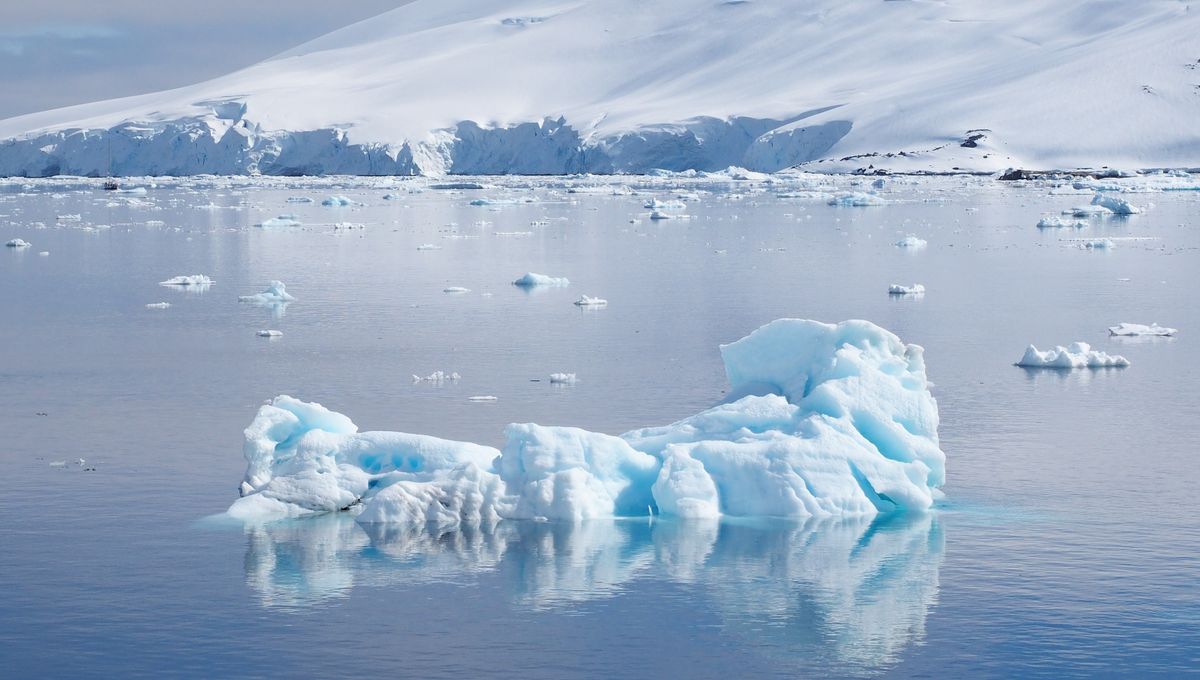
The Antarctic ice sheet has experienced periods of sudden melting, according to a new climate record from over 20 million years ago. This research demonstrates how sensitive the planet’s early ice ages were and that the Antarctic ice sheet is less stable than previously thought. It also offers a glimpse of how the Antarctic could behave in the future as the Greenland Ice Sheet continues to melt, if greenhouse gas emissions continue to rise.
The Antarctic ice sheet has not been a static feature; it has varied in size throughout its long history. These variations in size appears to happen quite regularly, to the extent that the cycle between growth and melting has been likened to a heartbeat. However, this beat has not stayed consistent either, as existing records from different places in the ocean have shown variations in its “rhythms” during early Antarctic ice ages.
This variation in rhythms is a bit of a puzzle for researchers as it shouldn’t be possible. The imprint of this waxing and waning process on the climate record should be exactly the same everywhere in the ocean, in a similar way that you wouldn’t expect the pulse in your leg to differ from the pulse in your arm. So what’s going on?
This heartbeat is caused by the shape of the Earth’s orbit around the Sun over the course of hundreds of thousands of years. On a more eccentric orbit, the distance between the Earth and the Sun can vary to the extent that it receives more heat throughout the year when it is close, and less when it is further away.
This added heat can change the planet’s climate, resulting in greater ice sheet melting. Sometimes this happens extremely quickly. However, when the Earth’s orbit is more circular, the ice sheet remains stable and less melting takes place.
In the latest study, researchers examined the period between 28 and 20 million years ago, a time when the planet was warmer than it is today, and the Antarctic ice sheet was the only one in existence. They used data taken from geological cores recovered from the northwest Atlantic Ocean by the Integrated Ocean Drilling Program (IODP) in 2012.
Microorganisms in these cores provide a snapshot of the environmental conditions and chemistry of the ocean at the time, especially in the form of oxygen isotopes in their shells. The ratio of these oxygen isotopes offer scientists a way to measure whether the ice sheet had grown or shrunk, and to establish a timeline from the depth of that sample in the cores.
“It may be a surprising thing to learn that we take the pulse of the Antarctic ice sheet by doing some simple chemistry on pinhead-sized fossil shells from the deep sea floor on the other side of the world,” Professor Paul Wilson, Principal Investigator on the project at the University of Southampton, explained in a statement.
“But the really beautiful thing is that we can do it back through the geological record over tens of millions of years. Earth science is about time travel into the past and we are always learning lessons to help us understand our future”
Through this analysis, Wilson and colleagues were able to create a new benchmark climate record for comparing existing records.
This can help scientists calibrate their own climate models when reconstructing past climate change while also helping us understand the impacts the melting Antarctic ice sheet will have in the future.
“From our research, we can see that the Antarctic ice sheet is more unstable than previously thought. We demonstrate how sensitive the geologically early Antarctic ice sheet was to changes in Earth’s orbit and axis,” lead author Dr Tim van Peer, from the University of Leicester School of Geography, Geology and the Environment, explained.
“Past climate changes rapidly ended some of the early Antarctic ice ages and caused large amounts of melt. ‘Rapidly’ is on geological time scales, not as rapid as we can expect to happen during modern climate change.”
This forces us to reconsider how we understand the stability of the Antarctic ice sheet, especially if carbon emissions remain unchanged.
“[W]e are on course to melt a large amount of the Antarctic ice sheet. We need to mitigate climate change by reducing our emissions. This is the only way to not cross tipping points in the stability of the Antarctic ice sheet,” van Peer added.
The study is published in Nature Communications.
Source Link: The Antarctic Ice Sheet Has An Irregular "Heartbeat", Suggesting It Is Melting Rapidly